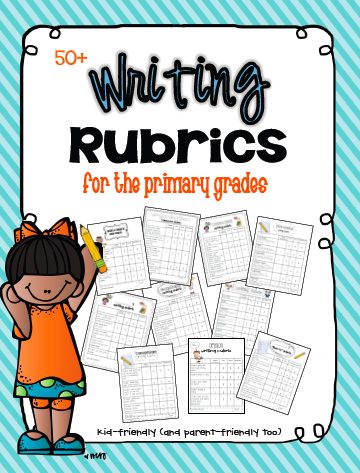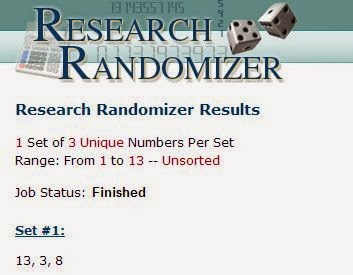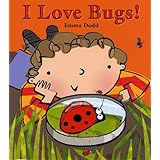I like to use writing rubrics because they help me to be consistent when grading student writing. Rubrics also set up my expectations. My students, their parents and I can clearly see what I am looking for. Making/using rubrics helps me to really think about what I expect from my students as writers. Through the years, I've experienced so many different levels of writing and writing styles. I realized early on that there isn't just "good writing' and "not so good writing". Some kids are excellent with their conventions/neatness which sometimes led me to give them a better grade even if the actual writing wasn't that spectacular. On the flip side, you may have a student with “developing” handwriting and complete lack of conventions (including most words spelled incorrectly), but they have amazing voice or interesting ideas. They are often overlooked as "bad writers" just because their writing looks so bad. Using rubrics not only assisted me in communicating these strengths and areas of improvement, but it also allowed me to celebrate a student's gifts as a writer. When I started using rubrics I found that my grading was more fair and consistent. I also found that I was able to set goals more easily for my students because it was easier to see where they didn't quite meet my expectations. Parents are also able to easily see (and hopefully understand more completely) where their child is at as a writer and what they can work on. And let's not forget the time I saved with using rubrics! I don't feel the need to write as much on each paper because the rubric explains a lot of it. If you teach writing, think about what you look for in your writers. Have you set those expectations for your students and for yourself? Do you look for the same thing in every writing piece or do you have a special focus for certain writing pieces? Do you communicate these expectations and goals to your students?
I made this little presentation for my team last year because we were all interested in diving into rubrics more. It's basically the Cliffsnotes version of what I wrote above. :)
Here are examples of rubrics I've made:
Here I have 4 levels of performance. I've also used three (developing, meets standard, and exceeds standard). If you look closely, you can see that I used different descriptions for the levels of performance. You can create your own language based on what works with your school or classroom.
The criteria is constantly evolving as the school year progresses.
If you don't want to make your own rubrics, you might like some of the rubric packs I've made. A while back I made a pack of writing rubrics for the primary grades. There are several rubrics that get progressively harder. It is perfect for 1st and 2nd, but I've been told that many rubrics in this pack also work for 3rd-4th.
I also made rubrics for reading responses...
and for kindergarten writing...
Here is a guided reading rubric that I send home to parents:
Now for some NEW freebies:
This year, I've been sending home "reading reports" for my reading groups.
Here is one that I made for kindergarten:
I write in specifics if needed. For example, in the "Identifying sounds" box, I might write the specific vowel we are working on. For the sight word section, I might add in the sight words we've been focusing on.
I use this for first grade:
This one is filled in with skills that I was focusing on for that 2/3 week period.
You can download both of these freebies here.
Would you like to win a copy of ALL FOUR packs? Leave me a comment below about rubrics. It can be anything! (Some ideas: Do you already use rubrics? If so, what subjects? Do you want to start using rubrics? Which subject would you most likely use rubrics for? ) Don't forget to leave me your email address too. :) I will choose a winner tonight!
















































